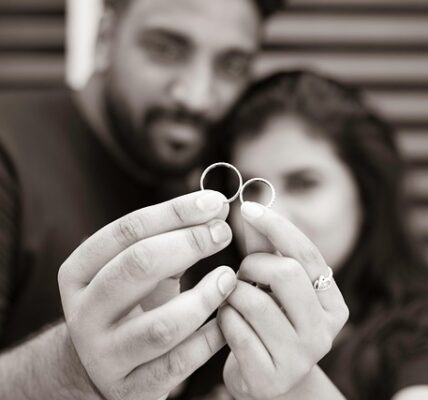Do Open Relationships Work?
The concept of an open relationship, where partners agree that it’s acceptable to have sexual intimacy with other people, often raises eyebrows and elicits strong opinions.
It challenges deeply ingrained societal norms around monogamy and exclusivity.
When couples consider this path, it’s often driven by a variety of factors.
Sometimes, it stems from a desire to explore individual sexual needs or curiosities that one partner may not be able or willing to fulfill within the confines of the existing relationship.
In other instances, it might arise from a feeling of stagnation or a hope to inject excitement and novelty back into a long-term connection.
And, as the premise of “Open HouseOpen House” suggests, some couples genuinely believe that by confronting potential insecurities and fostering open communication about sex and desire, they can build a stronger, more resilient partnership.
It’s fascinating to observe how shows like “Open House” portray these explorations. They offer a glimpse into the raw emotions, the difficult conversations, and the potential pitfalls and unexpected benefits that can emerge when couples venture into non-monogamy.
While such shows can be captivating and thought-provoking, it’s crucial to remember that they present a curated and often dramatised version of reality.
Real-life open relationships are far more nuanced and require a level of intentionality and emotional maturity that might not always be fully captured on screen.
The Million-Dollar Question Do Open Relationships Work?
The question of whether “do open relationships work” is not one that can be answered with a simple yes or no.
The success of such an arrangement hinges on a multitude of factors, most importantly the individuals involved and the foundation of their primary relationship.
A strong, secure, and communicative partnership has a higher likelihood of navigating the complexities of openness than one already struggling with trust, insecurity, or poor communication.
For an open relationship to even have a chance of strengthening a bond, both partners must be unequivocally on board and genuinely enthusiastic about the idea, not just agreeing out of fear of losing the other or feeling pressured.
There needs to be a deep level of trust and a commitment to radical honesty. This includes not only being truthful about sexual encounters but also about the emotions and vulnerabilities that arise.
Jealousy, insecurity, and the fear of being replaced are natural human emotions, and they need to be acknowledgedtt and addressed openly and with empathy.
Furthermore, clearly defined boundaries and agreements are paramount.
What exactly does “open” mean for this particular couple?
Are there restrictions on the type of sexual contact, the emotional involvement with other partners, or the disclosure of information?
These boundaries need to be discussed, agreed upon, and revisited as needed.
A lack of clarity or unspoken expectations can breed resentment and conflict.
The Potential Pitfalls and Unexpected Benefits
While the intention behind exploring an open relationship might be to strengthen the primary bond, there are inherent risks involved.
One significant pitfall is the potential for one or both partners to develop deeper emotional connections with someone outside the relationship, leading to feelings of inadequacy or being secondary.
The introduction of other sexual partners can also trigger insecurities about attractiveness, sexual performance, and the overall value within the primary relationship.
Communication breakdowns are another major risk.
Navigating the emotional terrain of open relationships requires exceptional communication skills.
Partners need to be able to express their feelings, fears, and needs openly and honestly. And even when it’s uncomfortable. Avoidance or passive-aggression can quickly erode trust and create distance.
However, if navigated with care and intention, some couples do report unexpected benefits from exploring non-monogamy.
For some, it can alleviate pressure on one partner to fulfill all of the other’s sexual desires, potentially reducing resentment or feelings of inadequacy.
The open and honest communication required for a successful open relationship can spill over into other areas of the partnership, fostering greater intimacy and understanding.
Additionally, the experience of seeing their partner desired by others can, for some, paradoxically enhance their appreciation and attraction for their primary partner.
The novelty and excitement of external encounters can sometimes reignite passion within the core relationship.
The Importance of Self-Awareness and Professional Guidance
Ultimately, the decision to explore an open relationship is a deeply personal one. It requires a significant amount of self-awareness from both individuals.
Understanding your own emotional triggers, your capacity for jealousy, and your core needs in a relationship is crucial.
It’s also important to honestly assess the health and stability of the existing partnership.
Is the relationship already facing significant challenges?
If so, introducing the complexities of an open dynamic might exacerbate existing issues rather than resolve them.
For couples seriously considering this path, seeking guidance from a therapist or relationship counselor experienced in non-monogamous relationships can be invaluable.
A therapist can provide a safe and neutral space to explore motivations, fears, and expectations.
They can help facilitate open and honest communication, assist in establishing healthy boundaries, and provide tools for navigating the emotional challenges that may arise.
Should You? Are You Willing to Risk?
While shows like “Open House” offer a glimpse into the world of open relationships, the reality is far more intricate.
Whether “do open relationships work” as a means to strengthen a bond is highly dependent on the specific individuals involved, the strength of their existing connection, and their commitment to open communication, trust, and clearly defined boundaries.
It’s a path that requires careful consideration, a high degree of self-awareness, and often, professional guidance to navigate successfully.
The intention might be noble – to foster a stronger connection – but the journey is fraught with potential pitfalls and requires a level of emotional maturity and relational skill that not all couples possess.
3




